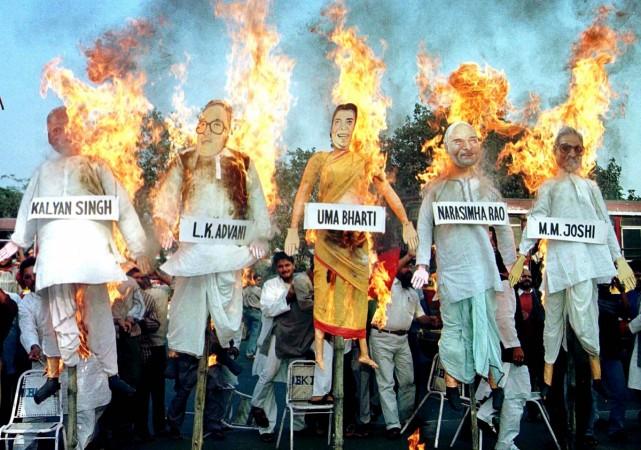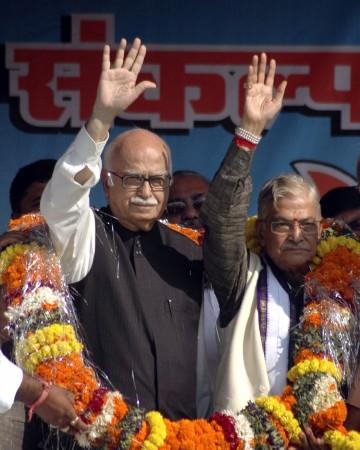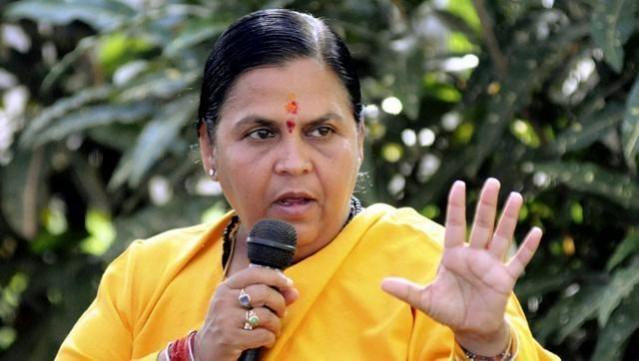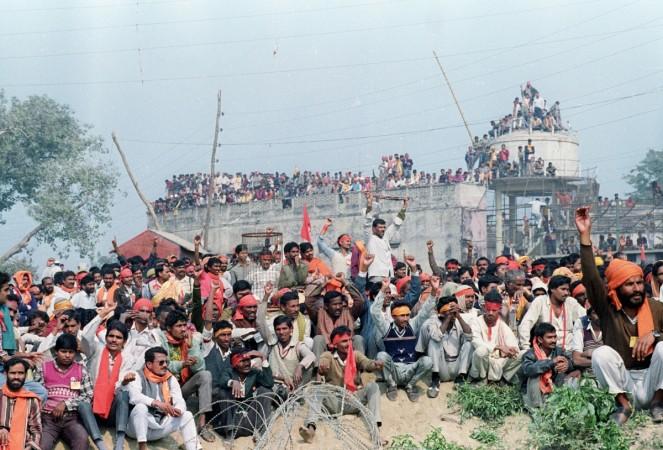
The Supreme Court on Wednesday, April 19, allowed the Central Bureau of Investigation (CBI) appeal that challenged withdrawal of conspiracy charges against several senior BJP and Sangh Parivar leaders in the Babri Masjid demolition case. LK Advani, Murli Manohar Joshi, Uma Bharti and some others would now have to face criminal conspiracy charges in the case. The next hearing is at 3 pm on Wednesday.
Leaders who will face criminal conspiracy charges are Vinay Katiyar, Sadhvi Ritambara, Satish Pradhan, Champat Rai Bansal and the late Giriraj Kishore. The apex court, however, excluded BJP leader and current Rajasthan Governor Kalyan Singh from facing the charges. It also said that the matter would now be heard in a Lucknow court on a daily basis without granting adjournment. Singh enjoys constitutional immunity as Rajasthan governor and, therefore, can be tried only after he ceases to hold office, the bench said.
The SC also directed the CBI to make sure that some prosecution witnesses appear in trial court for recording of testimony. The court ordered that no judge hearing the Babri Masjid demolition case will be transferred till the verdict is announced. It also directed the Lucknow trial court to begin proceedings in four weeks and also clarified that there would not be any de novo trial — a new or fresh trial by a different tribunal.
A bench comprising Justices PC Ghose and Rohinton F Nariman had reserved its judgement on the matter on April 6 this year, saying that a joint trial would be ordered in a Lucknow court following the revival of criminal conspiracy charges against the leaders in connection with the demolition of the mosque in Ayodhya in December 1992.

The apex court had said that the fact that the cases in the Lucknow and Rae Bareilly courts related to the matter are still pending indicates "evasion of justice." It had proposed earlier this month that the court would invoke its extraordinary constitutional powers under Article 142 of the Constitution and club the pending trials in a Rae Bareilly Magistrate court and the Lucknow CBI court against "lakhs of unknown kar sevaks."
The SC also said that it would give a deadline of two years to the CBI court to complete the trial in the case. It added that Advani, Joshi and others involved in the case must face trial for criminal conspiracy. Around 195 witnesses have already been examined in the Lucknow case while nearly 800 witnesses still remain to testify. In the Rae Bareilly case, at least 57 witnesses have been examined while 105 of them are still waiting to testify.
"Kindly notice that this is a matter of 1992. Twenty five years have passed. Our answer is have it on a day-to-day basis and finish it off in the next two years," Justice Ghose had said on April 6. "If Lucknow and Rae Bareli are pari materia , the conspiracy charge against them should revive and both cases be tried jointly," Justice Nariman had said.

The CBI had told the apex court on April 6 that charges against Advani, Joshi and others must be revived, as the politicians were part of a bigger conspiracy to demolish the Babri Masjid. Advani and Joshi had agreed to face conspiracy charges if the CBI could provide strong evidence against them in the Rae Bareilly court. Advani, Joshi and six other political leaders were accused for giving provocative speeches in the Rae Bareilly case.
In May 2010, the Lucknow bench of the Allahabad HC had upheld the lower court's order of May 2001 in the Babri Masjid demolition case and dropped criminal conspiracy charges against 21 others due to technical reasons that the court was not set up as per the government's notification and that there was no concurrence of the High Court. The CBI had then moved SC in February 2011.

The CBI had booked Advani and 20 others under sections 153A (promoting enmity between classes), 153B (imputations, assertions prejudicial to national integration) and 505 (false statements, rumours etc.circulated with the intent to cause mutiny or disturb public peace) of the IPC. It had then added charges under IPC section 120B (criminal conspiracy) which was quashed by the lower court. The decision was subsequently upheld by the Allahabad High Court.
The Babri Masjid was demolished by several Hindu extremists in 1992. Over 3,000 people lost their lives in the large-scale communal violence that followed the incident. The Hindus believed that Mughal emperor Babur had demolished a temple at the site, which is considered to be the birthplace of Hindu god Ram.















